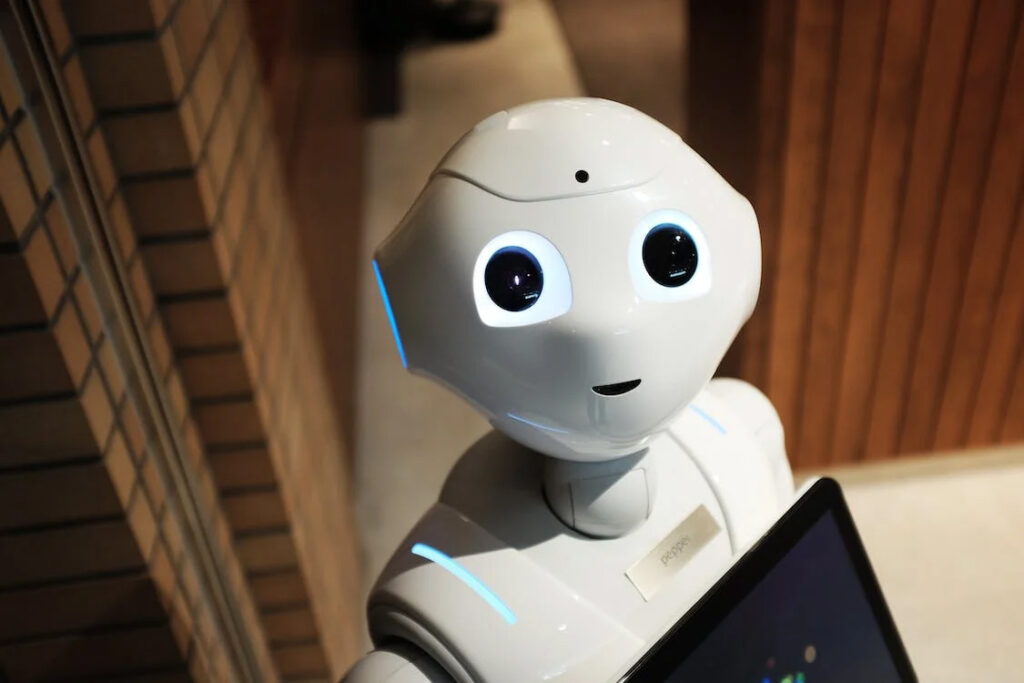Eric Schmidt: Not Having Babies Counters AI’s Disruptive Effects
AI poses an existential threat to humans. This is a warning many experts have repeated since it became clear that the advent of artificial intelligence has come. In the healthcare field, for example, AI shows great promise in expanding access to more patients. However, it similarly expands attack surfaces and opportunities for cybercriminals to compromise healthcare systems. Also, there’s the problem of societal disruption, especially when it comes to jobs and people’s value in the modern economy.
Interestingly, former Google CEO Eric Schmidt came out with an attention-grabbing take on this concern in a speech at the Wall Street Journal’s CEO Council Summit in London. The tech visionary believes that the current generation’s refusal to raise the birth rate, which has reached a record low in the United States, could be the counterbalance to AI’s threat of social disruption.
Positive net benefit
Schmidt allayed fears that AI or new technologies in general would be too disruptive that they cause chaos and more difficulties for mankind. Concerns over possible widespread job losses and disregard for human welfare may be overblown, especially in the face of decreasing birth rates.
The trend of lower birth rates in the United States and many other parts of the world is triggering alarms, with China currently demonstrating the kind of problems it poses. However, for Shmidt, it may be the silver lining people need to see to be more welcoming to new technologies. He believes the narrative that new technologies are antithetical to human wellbeing stands on shaky grounds.
Schmidt believes the benefits of AI and other new technologies will be a net positive, as new tech takes over positions that are already difficult to fill. The rise of AI comes at a time when society needs to prepare for the demographic problems that will come with shrinking populations. There may be fears that jobs will be taken over by machines—for now. In the next decades, businesses and people in general may just be thankful that they have technologies to do things when there are already fewer people to do them.
Schmidt explains that it is likely that there will be “literally too many jobs and not enough people for at least the next 30 years.” This is something pundits fail to take into account when they lay out their grim predictions. “In aggregate, all the demographics say there’s going to be a shortage of humans for jobs,” Schmidt stresses.
The declining global birth rate now stands at a low 2.3%, which is only a mere 0.2 percentage points higher than the replacement rate of 2.1%. If the trends continue, the world is bound to suffer a demographic catastrophe.
Jobs that can and cannot be automated
Eroding populations are a problem because of fewer people to do jobs, operate businesses, consume, and pay for taxes to keep governments running. With AI and other new technologies, many jobs will have to be relegated to machines. A quick Google search shows that these AI-replacement-prone jobs include data analysis, software development, lawyering, graphic design, event management, proofreading, bookkeeping, accounting, editing, sales, delivery and logistics, reception, and financial advising.
Supplantable jobs will not be abruptly taken over by machines all at once. It is more likely that they will slowly become less available to people, forcing jobseekers to adapt to the shift and focus their skills on other kinds of jobs or fields of endeavor. Many jobs are still considered at low risk of automation, according to the US Career Institute. These include nursing, mental health counseling, coaching, athlete training, physical therapy, orthodontics, prosthetics, occupational therapy, healthcare social work, bioengineering, biomedicine, emergency medicine, civil engineering, firefighting, dermatology, and surgery.
Elderly or geriatric care may also continue to be available to humans. Japan has been conducting a long-running experiment on using robots to care for the elderly. It turns out that caregivers say that they end up doing more work with the robots around.
Ultimately, people will have to learn to do the things that are unlikely to be automated. This means a reduction of occupation options, but it is a reality everyone had to learn to cope with as technology became part of society. Technology has always been disruptive. This is not the first time it ushers change in the way people live.
Why it makes more sense to embrace new tech
At this point, it appears inexpedient to actively try to slow down the advancement of technology. Of note, Eric Schmidt opposed the petition for an AI development moratorium. Schmidt argues that even if many hold back on their R&D activities, some others will continue advancing the technology—possibly with malicious motivations. Instead of suppressing technology, it would be better to keep up with it and learn how to prevent it from becoming what some fear it would be.


